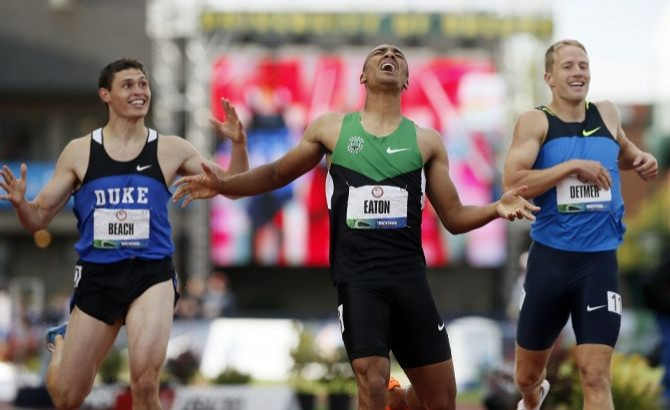Psychological Traits of Olympic Athletes Increase Their Risk for Mental Problems in Later Life

The perfectionistic and competitive nature of Olympic athletes can put them at risk for mental health problems during their transition to life beyond elite sport, according to findings from a new study.
While many former Olympians make the adjustment smoothly and later go on to excel in new projects, others struggle to deal with life away from intense training and competition.
Australian researchers from The University of Queensland conducted a study based on interviews from Olympic athletes who had both trained for and competed at the summer or winter Olympics and found that the process of changing social networks and re-entering the workforce was extremely difficult for competitors who require certain characteristics to succeed in their sports.
“Given that Olympians require an exceptional range of characteristics such as determination and patience, one would assume that such characteristics would guarantee success in life after their sporting careers. Our research suggests that this is not always the case,” Dr. Steven Rynne, from the School of Human Movement Studies at The University of Queensland said in a new release.
“Some characteristics have proved to be useful beyond sport such as organization and persistence while others proved less useful. Submissiveness, perfectionism, and competitiveness were identified as the most problematic,” Rynne added.
A former Olympian, named Thomas, who competed in a "combat sport" said that the "egocentrism" essential to succeed in competition became a disability in later life.
"Sport is like this: when you do competition sport, you think about you, what I’m going to do to beat my opponent," Thomas had told the researchers, according to the study.
"If you quit and you retire from sport, you can’t only think like this and you are not alone anymore, and it’s not only going on success or that you win. You are living with other people and you have to socialize or whatever. It’s a bit more complex," he added.
Another former athlete described herself as a perfectionist who suffered severe depression and anxiety for a year after retirement.
“In [my sport] you would be training for some intricate little skill that you want to improve or perfect and you had constant goals and you had constant reassurances that you were doing the right thing,” she said.
However, as a primary teacher she received very little feedback, and she worried constantly about whether she was going in the right direction.
“I had no measure of how I was going or was I going in the right direction or, of course as an athlete you have very high expectations, so I want to know that it’s going to be there in a fast manner. I kind of thought, I was overwhelmed by the fact that this wasn’t true anymore,” she said.
Rynne said that the dramatic in day-to-day activities could be hard for some former competitors to cope with, suggesting that it is important to consider who and what shapes the development of Olympic athletes and how the process can be improved to foster their athletic performance as well as adaptive behaviors beyond competitive sport.
“Much has been made of the Olympic ideals and the kinds of people that become Olympians, but few studies had examined this from a socio-cultural perspective with regard to what and how athletes learn on their path to and during their Olympic careers,” Rynne said.
Researchers said that the findings will provide direction for possible intervention strategies that may help sports coaches and practitioners better prepare their athletes for elite performance, as well as for life beyond sport.
Dr. Rynne's conducted his study, Preparing Olympic Athletes for Lives Outside of Elite Sport: Towards Best Practice, as part of the International Olympics Council's Olympic Studies Centre Research Grant Programme.
Published by Medicaldaily.com



























